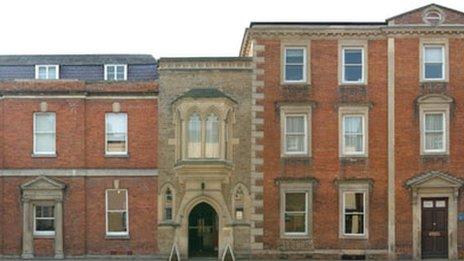Wiltshire Museum acquires bronze vessels buried 1,600 years ago
- Published
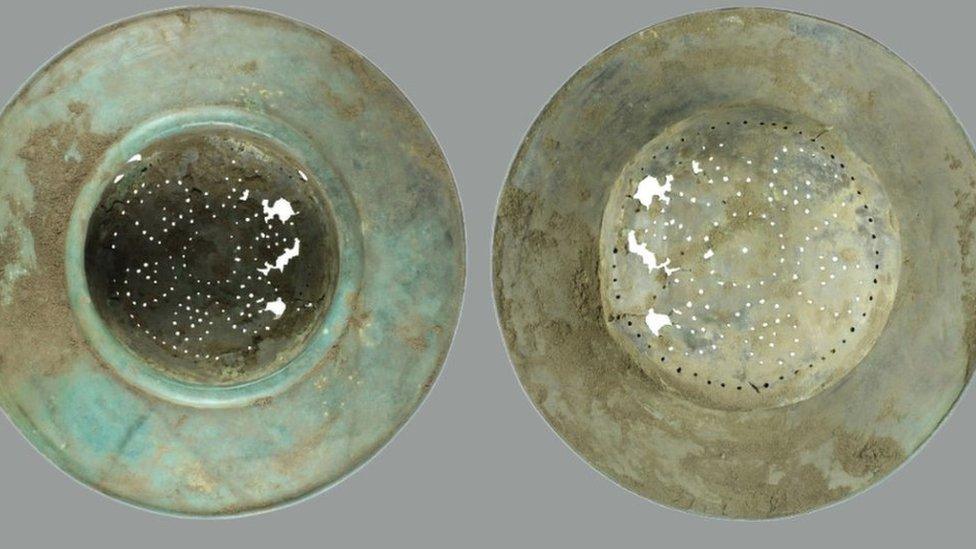
The vessels are fragile and urgently need conservation
A museum has acquired bronze vessels estimated to have been buried about 1,600 years ago in Roman Britain.
Wiltshire Museum is asking for public donations to help conserve the vessels found in Wilcot, near Pewsey, and put them on display.
They are so fragile they can only be removed from their packing by an experienced conservator.
The vessels were likely nested inside each other using heather, bracken and sedge grasses as bubble wrap.
Although buried at the same time, the vessels are of different dates.
The largest vessel is a bronze bowl that was made in about 350 AD, so the hoard must have been hidden after this date.
The smallest is a wine strainer, which was more than 200 years old when it was buried.
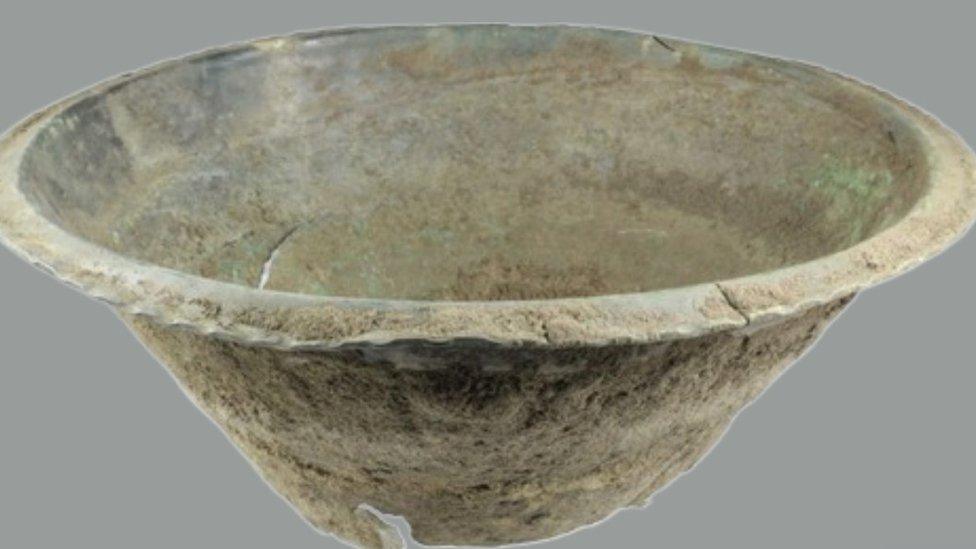
The museum is asking the public to donate so they can conserve the vessels
The other two bronze bowls were also heirlooms, one of them is more than 100 years old.
Wiltshire Museum curator Lisa Brown said the bronze vessels were fragile, and urgently needed conservation and cleaning to remove dried on soil and to prepare them for display.
Conservation experts, Drakon Heritage and Conservation, has been selected to undertake this incredibly delicate task.
The conservation and mount making is estimated to cost £1,500.
The hoard was found by Paul Hart, using a metal detector, and was then reported to the Wiltshire Finds Liaison Officer.
The finder and landowner have agreed to donate the vessels to the museum.

Follow BBC West on Facebook, external, Twitter, external and Instagram, external. Send your story ideas to: bristol@bbc.co.uk , external
- Published18 March 2023
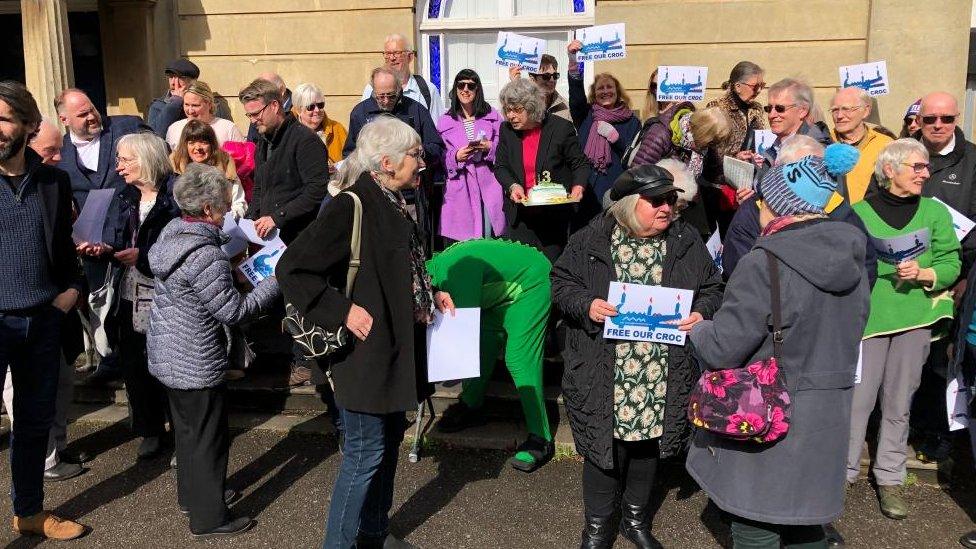
- Published17 February 2022
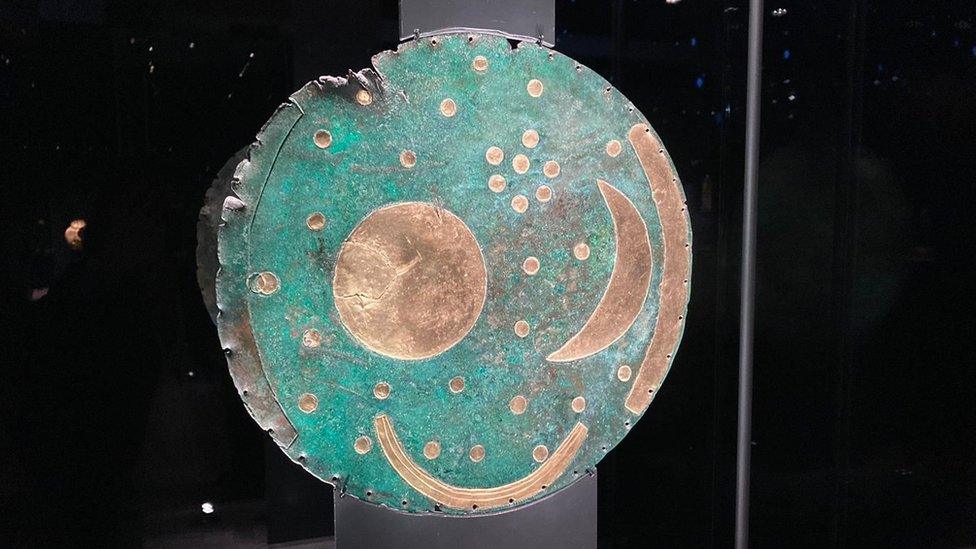
- Published2 March 2012
